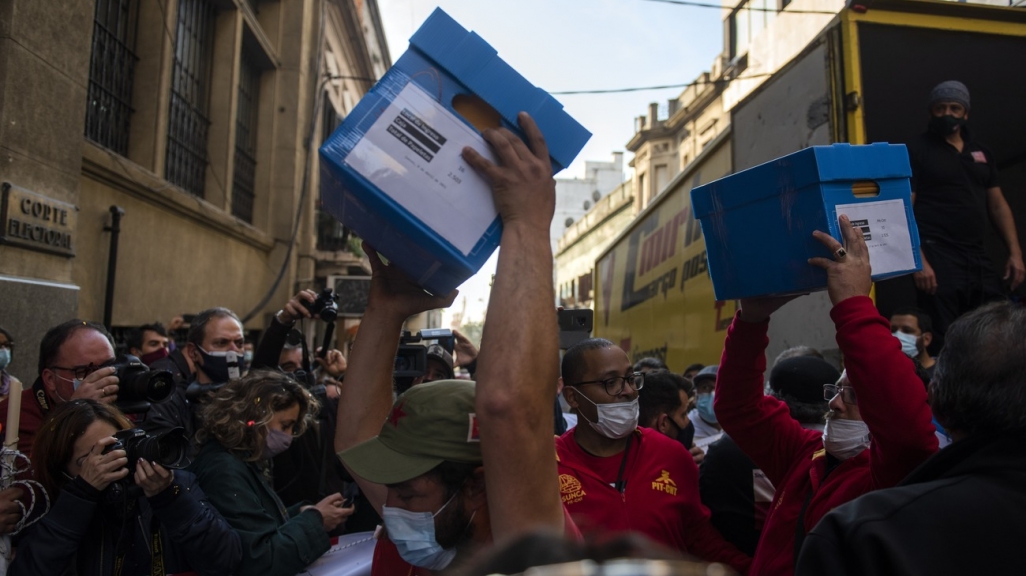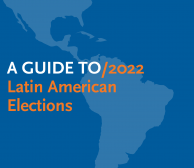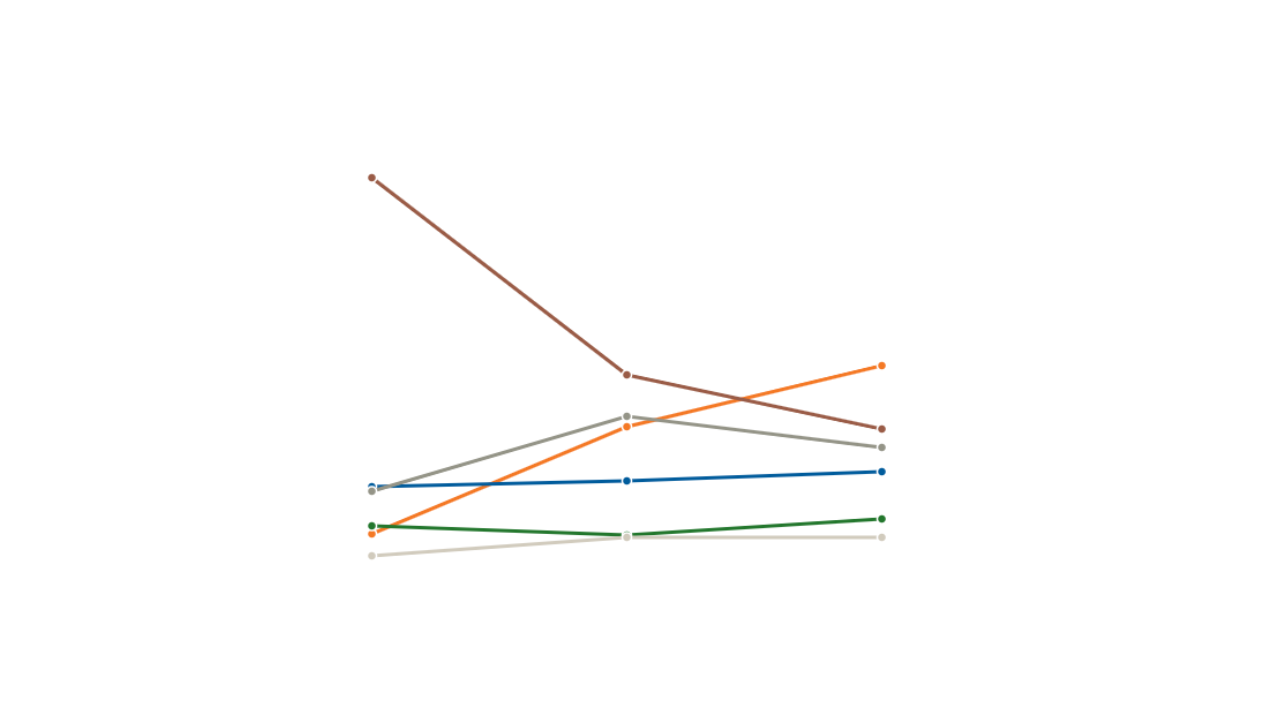Uruguay to Vote in Wide-Ranging Referendum
Uruguay to Vote in Wide-Ranging Referendum
The opposition-backed referendum on March 27 serves as a proxy midterm for the Luis Lacalle Pou administration, say experts.
Uruguayans head to the polls March 27 for a referendum on whether to repeal part of the Law of Urgent Consideration, or LUC, an omnibus piece of legislation passed in 2020. The LUC has 476 total articles, 135 of which will be up for consideration, covering topics like security, education, fiscal management, and public companies. The referendum is wholesale, meaning all 135 will be struck down if it passes.
Approved in 2020, the LUC is the hallmark reform of President Luis Lacalle Pou, whose victory in the 2019 election ended 15 years of governance by the left-leaning Broad Front (Frente Amplio) coalition. “The referendum is as much about the law as it is a midterm about the president himself,” says Nicolás Saldías, an analyst at the Economist Intelligence Unit. “There’s a lot of partisan division there. It’s about whether or not the government is doing well.” The results—including the margin of victory either way—may determine the extent of Lacalle Pou’s political power for the rest of his term, says Saldías.
The LUC was passed by what’s known as the Multicolored Coalition of right-wing parties that support the president. It executed on one of many focal points of Lacalle Pou’s campaign, namely increasing security measures after record crime rates in 2017 and 2018. The law’s name is a reference to the special type of legislation. In Uruguay, laws of urgent consideration are sent by the executive to the General Assembly with only 90 days allotted for debate. Juan Cruz Díaz, managing director at Cefeidas Group and special adviser to AS/COA, noted that Lacalle Pou “took advantage of his honeymoon” to secure the passage of the LUC.
AS/COA covers this year’s votes in the Americas, from presidential elections to referendums.
For ten years, El Chasqui delivered a semi-regular roundup of news—from election coverage to economic issues to start-ups.










